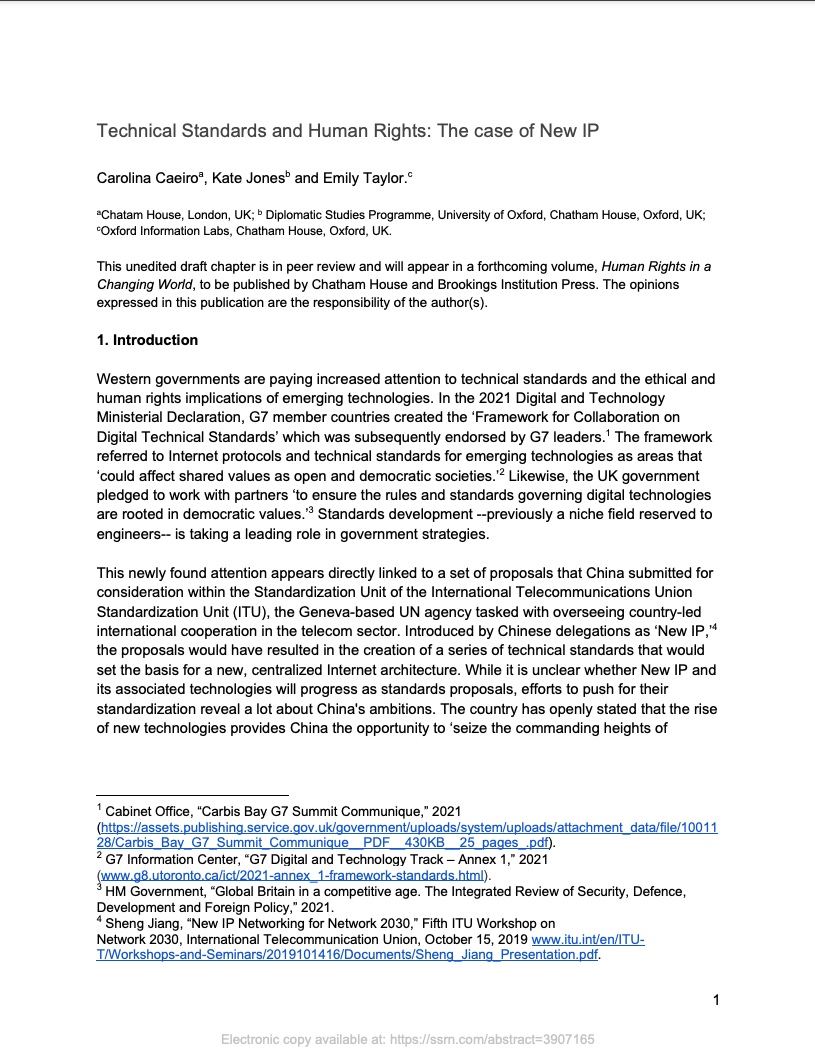
Description
This unedited draft chapter is in peer review and will appear in a forthcoming volume, Human Rights in a Changing World, to be published by Chatham House and Brookings Institution Press. The opinions expressed in this publication are the responsibility of the author(s).
Blog summary
Western governments are paying increased attention to technical standards and the ethical and human rights implications of emerging technologies. In the 2021 Digital and Technology Ministerial Declaration, G7 member countries created the ‘Framework for Collaboration on Digital Technical Standards’ which was subsequently endorsed by G7 leaders. The framework referred to Internet protocols and technical standards for emerging technologies as areas that ‘could affect shared values as open and democratic societies.’ Likewise, the UK government pledged to work with partners ‘to ensure the rules and standards governing digital technologies are rooted in democratic values.’ Standards development --previously a niche field reserved to engineers-- is taking a leading role in government strategies.
This newly found attention appears directly linked to a set of proposals that China submitted for consideration within the Standardization Unit of the International Telecommunications Union Standardization Unit (ITU), the Geneva-based UN agency tasked with overseeing country-led international cooperation in the telecom sector. Introduced by Chinese delegations as ‘New IP,’ the proposals would have resulted in the creation of a series of technical standards that would set the basis for a new, centralized Internet architecture. While it is unclear whether New IP and its associated technologies will progress as standards proposals, efforts to push for their standardization reveal a lot about China's ambitions. The country has openly stated that the rise of new technologies provides China the opportunity to ‘seize the commanding heights of standards innovation.’ By leading standardization processes, China is looking to reshape the architecture of the Internet and set the rules that will govern the technologies of the future.
About this Blog
Publisher
Chatham House
File type
PDF
File size
324k
Page count
24
First published on
Invalid Date

